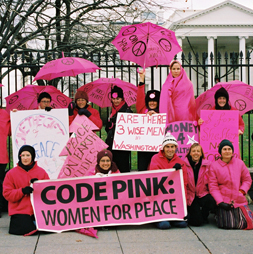- About
- Topics
- Story
- In-Depth
- Picks
- Opinion
- News
- Donate
- Signup for our newsletterOur Editors' Best Picks.Send
Read, Debate: Engage.
| topic: | Women's rights |
|---|---|
| located: | Mexico |
| editor: | Ellen Nemitz |
The year 2021 will be pivotal for many Latin American countries’ politics, Mexico included. In June, the country will hold legislative and regional elections amid a political crisis involving President Andrés Manuel López Obrador.
Sworn in under the promise of a huge transformation of Mexico to a more egalitarian country, including for women, López Obrador is being severely criticised for supporting the candidate Félix Salgado Macedonio, who is running for governor in the state of Guerrero and faces more than one rape accusation.
The relation between the two politicians sparked marches against the president on 8 March, when the world marked International Women’s Day. According to the New York Times, the current situation involving Salgado Macedonio comes to reaffirm a historic overlook to violence against women in the country. With high rates of violations and femicides, Mexico’s police is reported to have repressed women's peaceful protests with excessive force in 2020, “violating their rights to freedom of expression and peaceful assembly,” said Amnesty International.
“During the arrests and transfers, police officers spoke to the women using violent and sexualised language, threatened them with sexual violence and subjected them to physical and sexual violence,” said Tania Reneaum Panszi, executive director at Amnesty International Mexico. She also affirmed that the authorities try to discredit the feminist movement by stigmatising it as violent or unmotivated.
In addition, female candidates report instances of harassment, as published by El País, even as the elections hinge on gender parity. Therefore, The New York Times analysed, based on specialists’ opinions, that “Mr. López Obrador may actually be missing a transformational moment shaping Mexico’s politics and society: a growing feminist movement that is demanding a serious government response to widespread violence against women.”
The growing opposition to the president does not rely only on this specific case, however. He and his team have been improperly dealing with the Covid-19 pandemic, as marked by the Doctor of Medical Science and microbiology professor and researcher Laurie Ann Ximénez-Fyvie, in the book “Un daño irreparable” (An Irreparable Damage).
Despite the government’s propaganda - which included the participation of Argentinian president Alberto Fernández as he announced the partnership between the two countries in vaccination production - the author calls the conduction of health policies “criminal.” In an interview with BBC, she explained it: “Initially, I thought their management was a mistake for lack of information. Now, unfortunately, I realise that in Mexico it is not that they have not known what to do, it is that they made the decision not to do so.”
The mistakes, according to the specialist, include denying the seriousness of the pandemic, the president’s refusal to wear face masks when attending mass events (thus discouraging many people from using this important protection) and maintaining open international borders. All these led the country to chaos: almost 200,000 deaths have been recorded as of 15 March, according to John Hopkins University. Vaccination rollouts have been slow, and much less than 1 percent of the population is fully immunised.
Next June’s elections may be an important social response to the crisis, especially concerning gender - considering Salgado Macedonio’s candidacy - and could also serve as a warning to López Obrador. Would a defeat for his party result in changes on how he governs, both on gender and health?
Image: Eneas De Troya.

